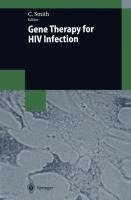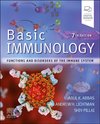
-
 Anglický jazyk
Anglický jazyk
Gene Therapy for HIV Infection
Autor: Clay Smith
ince the early 1980s, the HIV epidemic has been raging within the S 1 United States and around the world. Drug therapy for HIV infection has not been curative, prompting the search for alternative strategies to control HIV infection within infected persons.... Viac o knihe
Na objednávku, dodanie 2-4 týždne
48.39 €
bežná cena: 54.99 €
O knihe
ince the early 1980s, the HIV epidemic has been raging within the S 1 United States and around the world. Drug therapy for HIV infection has not been curative, prompting the search for alternative strategies to control HIV infection within infected persons. One potential alterna tive to drug therapy is a developing medical technology termed gene therapy. 2 Gene therapy involves introducing genetic elements into popu lations of cells in order to correct or prevent a pathologic process. A large number of gene therapy strategies have been developed in an at tempt to inhibit HIV expression and spread. These strategies fall into two general categories, genetic modification of cells in order to elicit an immune response against HIV and genetic modification of the target cells of HIV infection in order to block HIV expression and reproduction. In the first strategy, termed genetic immunotherapy by some, genetic material encoding HIV proteins is introduced into patient's cells in order to stimulate a cellular immune response above and beyond 3 5 that stimulated by the viral infection itself. - Two general genetic im munotherapy strategies have been developed. Genes encoding HIV pro teins have been directly injected into the dermis or muscle tissue of patients. These genes have been encoded in plasmids or viral DNA and have been injected either in the form of naked DNA or complexed with lipids.
- Vydavateľstvo: Springer Berlin Heidelberg
- Rok vydania: 2013
- Formát: Paperback
- Rozmer: 235 x 155 mm
- Jazyk: Anglický jazyk
- ISBN: 9783662118238












